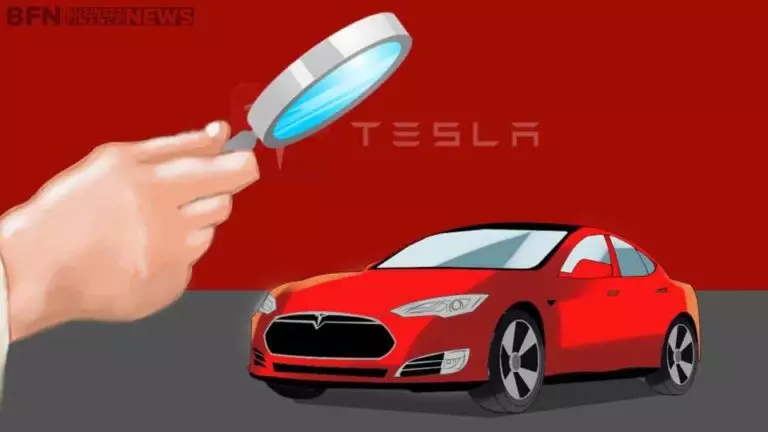A Step Closer to Auto Safety: Auto-Emergency Becoming Standard by 2022
NHTSA, IIS, and 20 Automakers Have Signed An Agreement To Make Auto Braking System A Standard In Their Vehicles By 2022
Auto industry is a step closer to safety. It is one of those occasions when almost all the car makers and government regulators have agreed on a common thing; to make cars safer by installing auto-emergency braking system mainstream in all of the US vehicles by 2020.
The report was first disclosed by Reuters on Wednesday; however, the agreement was confirmed today by the Insurance Institute for Highway Safety (IIHS) and the US Department of Transportation’s National Highway Traffic Safety Administration (NHTSA) and 20 car companies that represent over 99% of the total US auto sales. The automatic emergency braking system will become a standard feature on all new vehicles beginning from September 2022, which is when NHTSA’s reporting year starts.

Currently, several car companies have installed the auto braking as a safety feature in their premium cars in order to avoid car collision. Such a feature is very much common for companies looking to develop autonomous driving cars. With automatic breaking feature becoming common in all light weight cars in US, this means that the auto industry as a whole is edging closer to autonomous driving technology. Most importantly, all the automakers and governmental bodies are supporting this change toward a safer transport.US Transportation Secretary, Anthony Foxx stated: “It’s an exciting time for vehicle safety. By proactively making emergency braking systems standard equipment on their vehicles, these 20 automakers will help prevent thousands of crashes and save lives.” He further added: “It’s a win for safety and a win for consumers.”
Automakers who have committed to make auto braking feature a standard in their vehicles are BMW, Audi, Porsche, Volkswagen AG, Volvo Cars USA, Toyota Motor, Honda, Hyundai, Kia, Mazda, Maserati, Land Rover, Mitsubishi Motors, Nissan, Tesla Motors Inc. (NASDAQ:TSLA), Detroit-based Ford Motor Company (NYSE:F), General Motors Company (NYSE:GM), and Fiat Chrysler Automobiles NV (NYSE:FCAU). A commitment from automakers means that the technology will be made available in the markets quickly against the distribution of regulatory process.
According to the official press release, the landmark change in the US auto industry will be made in two phases. Vehicles with gross weigh below 8,500 pounds, which includes majority of the vehicles on US roads, will be equipped with the auto braking technology by September 1, 2022. The deadline will be extended to further three years for the vehicles with gross weight between 8,501-10,000 pounds.
The widespread of emergency braking system is likely to reduce the number of traffic fatalities and car crashes. As reported by Reuters, the IIHS believe that once the emergency braking system is installed, the number of car crashes can drop 20%. There are a total of five million crashes each year, and after the technology has been implemented, nearly one million of car accidents can be prevented.
Why Emergency Auto Braking Is a Step Closer To Driverless Cars
Emergency Auto braking allows the vehicle to stop when the drivers do not hit brakes or does not apply enough brakes to prevent a collision. Such a technology is considered to be a basic feature in all the autonomous driving features currently launched by few car companies. Tesla Motors Autopilot feature, that supports auto-steering and auto-lane changing functionality also support emergency auto braking feature. This feature is also very much present in high-end vehicles manufactured by leading car companies.
However, the feature is still not used by masses. Just like the auto-pilot feature is only included in few of the luxury and premium cars of today, the auto-braking is likely to take three more years to become mainstream. The additional features of driverless cars, such as auto-pilot system, auto-parking, and auto-lane changing functionalities can also gradually make breakthrough in the masses. For that, car companies have to convince auto regulators about the safety benefits of these features.
Many analysts already consider autonomous driving technology an imminent future of auto industry. Tesla chief executive Elon Musk believes that traditional driving methods will become obsolete and people will keep conventional cars just for sentimental reasons. Such views are also shared by Carlos Ghosn, the CEO of Renault-Nissan.
We have studied investments from Netflix, new contracts signed by Orbital, SolarCity earnings report and their negotiation with Tesla for the acquisition of the Powerball battery, the problems that ARCH coal is facing, how IBM is investing in the treatment of the Zika virus, how Moon Express is planning to mine minerals in the moon, and how Citigroup is engaged in commodity trading.
We follow a lot Tesla here, from the fundamental analysis and from the technical as well. See how the Chevy Bolt and the Tesla 3 are dimensioning the evolution of the price of this shares and how this could affect technical analysis, and how the Autopilot functionality is working: the evolution of the Autopilot software has always influenced the prices of their stocks. Tesla Model S 70D is considered the “car of the century”, not by us of course, but we are interested to see how these awards affect the evolution of the stocks. Tesla and other companies signed an agreement so that autobraking became the standard in 2022. A trend in the automobile industry started by Mercedes Benz and Tesla, is having a platform to sell pre-owned vehicles: now General Motors is joining that trend as well.
We have studies how the stock slump of GoPro should be considered not only from the view of technical analysis. Also, check the functionality from Facebook, the “login approval” and if it really protects users or other interests. The reports from Volkswagen about their very low injury claims, how now other companies in China can use the name “IPhone” apart from Apple. We continue in China to learn about the Marketplace Alliance Program from Alibaba, and the joint investment in CloudFlare from Google Inc, Microsoft Corporation, Qualcomm, and Baidu.
About Google, a company we follow a lot here, I want to see how they have entered in the batteries market and how this will affect their current projects and the evolution of the stocks. Interesting are the Chrome updates to decrease CPU usage.
We analyze the effects of the position of Disney in the dispute between Netflix and Time Warner, so we can understand how Disney is shifting its business after selling its stake in Fusion.
We discuss briefly how Oracle adressed the changes in the cloud-computing industry, why Morgan Stanley is optimistic after the pandemic and the Brexit, the divestment in Dell regarding Perot Systems, and the effects of the huge minimum wage rise in Costco. Chipotle is cutting the executive compensation, the issues that BP is facing, what happens with Macy´s earnings and how fundamental analysis can be done in those cases. About Apple, we analyze the effect of the launch of this product Apple Watch where sales performed very irregularly.

I am David, economist, originally from Britain, and studied in Germany and Canada. I am now living in the United States. I have a house in Ontario, but I actually never go. I wrote some books about sovereign debt, and mortgage loans. I am currently retired and dedicate most of my time to fishing. There were many topics in personal finances that have currently changed and other that I have never published before. So now in Business Finance, I found the opportunity to do so. Please let me know in the comments section which are your thoughts. Thank you and have a happy reading.



